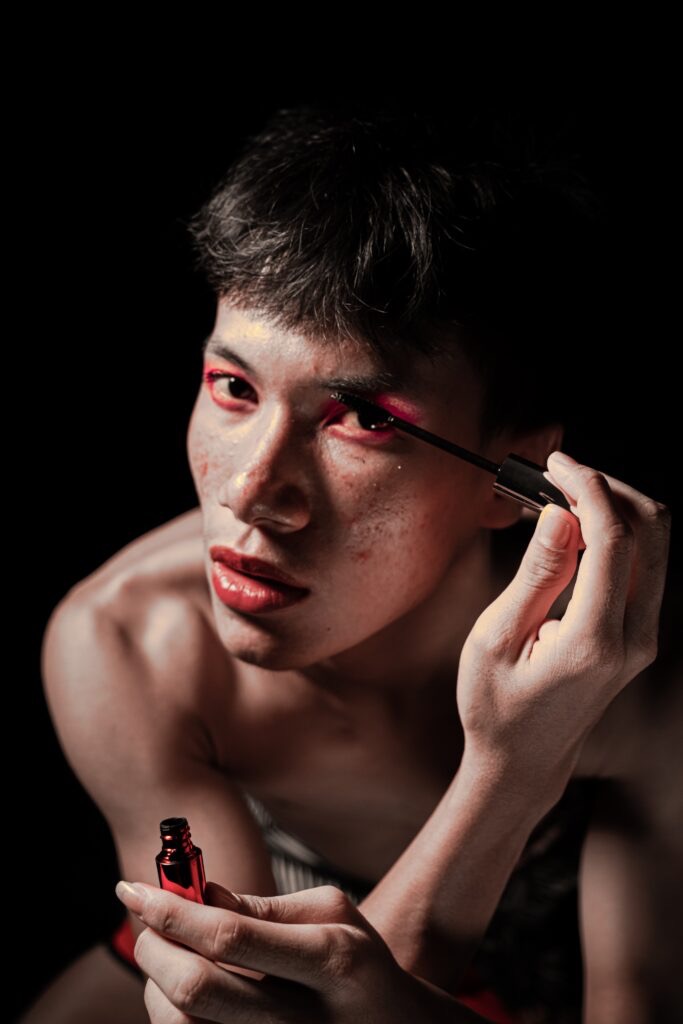Lily Mellitz ’26
Executive Arts Editor
“Beauty does not fully describe theater and dance. The arts speak so powerfully that one could miss its soul purpose. Dance speaks to the heart.”
— Venghour Than.
As a Theater and Dance major at Trinity College, with double minors in Film Studies and English Literature, Venghour Than ’25, originally from the small town of Takhmao, Cambodia, has embarked on a journey shaped by a blend of personal history, cultural identity and a deep love for the arts.
Growing up in the outskirts of Phnom Penh, Cambodia’s capital, Than lived in a small fishing village consisting of middle-class families who were vendors, mango farmers, civil servants and fishermen. It was this sense of community and connection that shaped much of his worldview, as well as his artistic sensibilities.
Before arriving at Trinity, Than attended the Liger Leadership Academy in Cambodia, a project-based learning school that laid the groundwork for his exposure to a liberal arts education. There, he was encouraged to explore various fields, from marine research as a scuba diver to coding for a digital banking system for the school. He even authored a book about the Cambodian economy, which was distributed to schools across the country.
But no matter where his academic ventures took him, dance always remained close to his heart. “Dance and arts spoke […] to me passionately and equally to any of these opportunities I was exposed to,” Than explained in an interview with the Tripod. “These initiatives have allowed me to realize the world is a classroom and me, myself as a change agent.”
While many people can recall specific moments when they discovered their love for the arts, Than’s realization traces back to his early childhood. As a young boy, he had few friends who were mostly girls. One afternoon, his teacher took his friends to an unfamiliar place, prompting Than to sneak out of class to follow them.
“I saw them dancing to the Cambodian classical ballet,” Than remembered. “I felt jealous as I later found out only girls were allowed to dance. So I only continued making excuses and [continued] peek[ing] at my friends dancing. [I’d come] home and dance quietly on my own, trying to follow the movements I remembered from watching them. That was when dance first spoke to me.”
Coming to Trinity, Than initially wanted to pursue biology given his experience as a researcher for the marine survey in one of the islands in Cambodia. However, dance was always at the back of his mind and it wasn’t long after arriving at Trinity that he knew his true calling lay within the arts. The Theater and Dance department, in particular, provided a space for him to grow, explore, and refine his artistic voice.
“I would confidently say all the members have contributed greatly throughout the four years I am at the College, supporting me to build my voice and the kind of work I wanted to create,” Than said. “Building voice and representation matters. As an international student from Cambodia, coming with a specific cultural background, I am thankful for the members of the department for continuing to demonstrate their effort to support.”
His time in the Theater and Dance department expanded his understanding of the world of art, not just through performance but through the lens of cultural politics and artistic exchange. “Coming to Trinity College […] I was already a dancer of Cambodia’s first gay dance company, Prumsodun Ok & NATYARASA,” Than said. “This means I have started building a serious commitment with artistic identity in advocating and innovating my practice that ultimately elevates a new sense of height for Cambodia tradition and hopefully globalizes the artistic identity in other parts of the world. In continuing [to realize] this mission, the department provided me with an exposure to a different setting and politics of art in the U.S, and this only does me the justice for self-informing and supporting the dance tradition and innovation I am a part of constructing.”
But for all the joy and excitement he has found in the arts, Than has faced personal hardships that have deeply influenced his work, particularly when he experienced the loss of his mother during his sophomore year. “I remembered and felt the lump of anger starting to harden inside me. I thought that it was the closest distance I ever was, sitting next to a motionless body. The woman, eyes closed and body still, rejected everything I thought I knew about dance […]. [It was then] when I relearn what dance is, the language I was familiar with since childhood. Grief, then, became the new language I learn[ed] to speak. I am still learning to speak it even though it has been two years since my mother is not here.”
For his senior thesis, Than created “UMBILICAL CORD,” a one-hour long dance drama that incorporates Cambodian classical dance and orchestra alongside contemporary movement. The story follows a mother and son crossing a large river in the middle of the night. When a rainstorm strikes, the mother is swept away, leaving the son alone and symbolizing the universal experience of grief and the journey through loss. The piece explores how movement becomes a language for processing trauma, reclaiming heritage and reconnecting with one’s origins.
“UMBILICAL CORD” […] speaks to one core value of humanity: how do we reconnect with ourselves and sense of origins amidst adversity and grief?” Than explained. “I realize that it is not only a relearning in the mind but also the body, to raise our hand and move our legs and walk out of the past, especially the painful one.”
The work is not just a personal reflection for Than; it’s inspired by his parents’ history as Cambodian genocide survivors, the broader Cambodian diaspora and those who have been displaced due to war and violence. “The US holds the second largest population of Cambodian diasporas beside mainland Cambodia,” Than said. “They too experience the language of loss, distance and disconnection from the culture and life of their previous generation — that experience of swimming in the middle of a river.”
Looking ahead, Than is eager to further his education and research in dance and theater. He has been offered several opportunities, including at prestigious institutions like University of California, Los Angeles, Duke, New York University and the University of Hawaii. He envisions his future in the arts as one where he continues to be a mentor and advocate for young dancers and performers.
“Raising the voice of the next dance and theater warriors is always the goal. The image of a little boy sneaking and peeking into the dance classroom keeps returning to my memory,” Than said. “With the current trend of the world and politics, I just know there are so many of them out there. I want to be the person who will stand in that dance classroom, eventually spotting the boy, and say to him, ‘hey, come in!’”
His advice to younger students considering a major in Theater and Dance is simple: “If you know exactly what dance and theater is, then forget it. That is where the fun begins because not knowing is the beginning of knowledge.”




+ There are no comments
Add yours